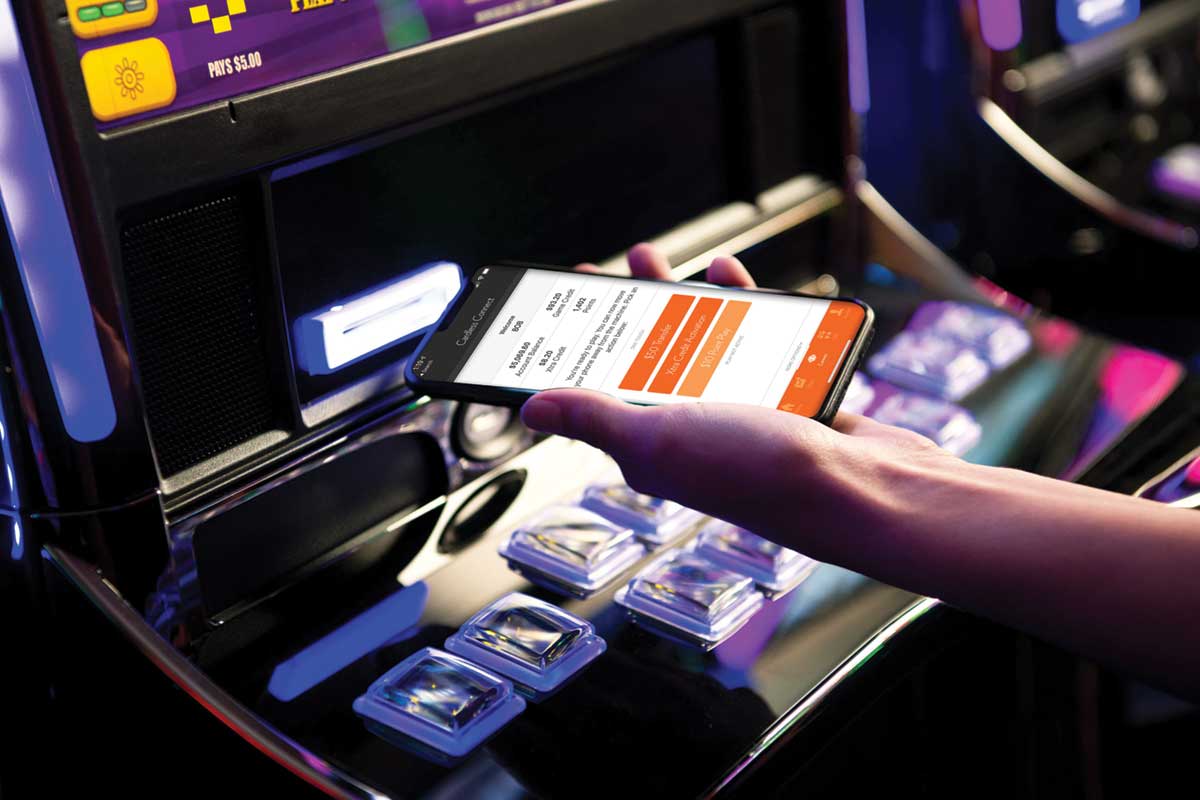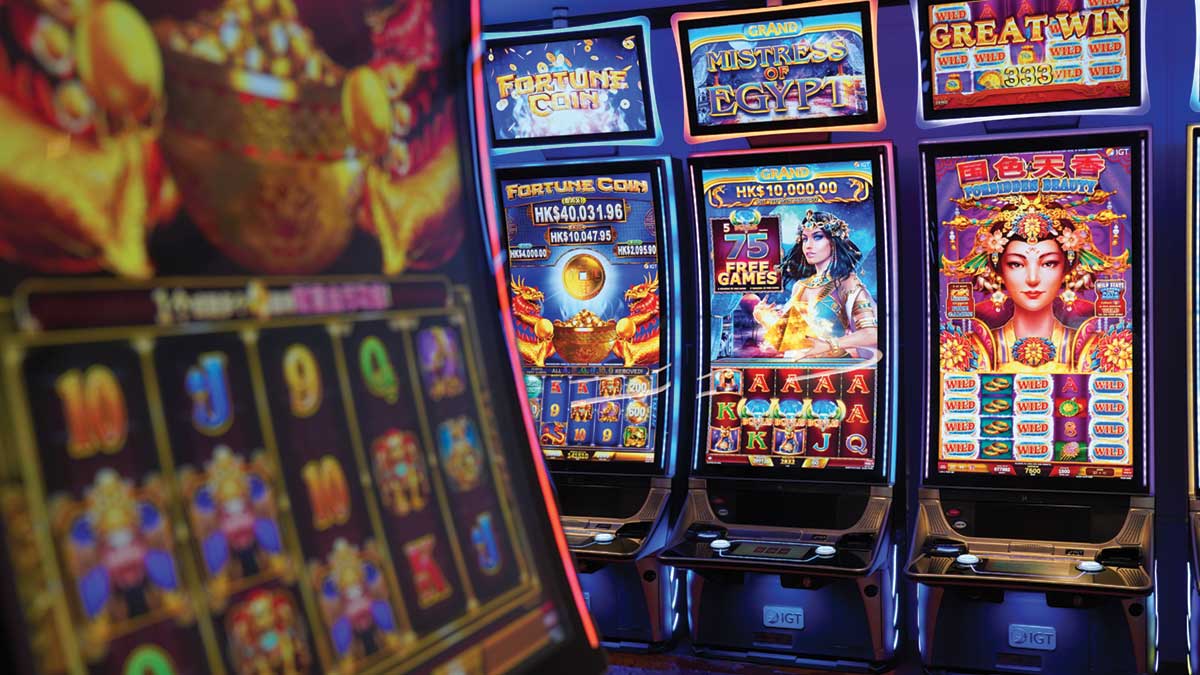With regulators and operators in the region reaching agreement to implement cashless card technology, we look at developments in cashless payment solutions and why they will lead to a more compliant and responsible future for the IR industry.
In 2020, the global economy registered record highs for payment transactions via cashless methods. Mobile payments accounted for 84% of all transactions in China, while non-cash payments made up 72% of all payments in the United States.
Cashless payments and digital wallets now lead in consumer transactions as the payment channel of choice, offering quicker, frictionless payment solutions for an all-round improved customer experience. With patrons now accustomed to using mobile payments and e-wallets in their daily lives, the limited availability and acceptance of cashless payments in the present casino environment may appear to handicap the IR industry’s drive for future revenue. This is especially relevant to the younger generation of tech-savvy customers who demand a digital-first approach to all customer service and operations.
 CAPITALIZING ON INNOVATION
CAPITALIZING ON INNOVATION
The IR sector has been responsive to harnessing technology developments for the benefit of the industry in the past. TITO systems were first introduced nearly 20 years ago, allowing for coin-free slot machines offering greater convenience for patrons, lower operating costs for casino operators, and a reduced risk of theft or loss. The rise of card-based technology in electronic casino gaming systems then followed, which brought enhanced functionality, especially among electronic cards with embedded microprocessors and chip technology that could store value, track player activity and ratings, and display membership rewards.
With the advent of mobile technology, the next generation of cashless wagering technology has now arrived. This effectively updates existing electronic card systems with their digital counterparts. Gaming technology companies have developed digital wallets with secure login that can be downloaded as an app to patrons’ smartphone devices. The digital wallets link to the players’ casino/loyalty member accounts and digitalize functions such as fund transfers, wagering and cash-out through the app on the smartphone devices. Players can then use the digital wallet app on their smartphone to play slot machines and table games, to enjoy sports betting and, in some cases, also for non-gaming retail purchases within the resort.
 Funds can be transferred into the digital wallets either by on-site top up at the casino cashier or kiosk, or in advanced versions via external payment gateways that allow fund transfers direct from bank and credit card accounts.
Funds can be transferred into the digital wallets either by on-site top up at the casino cashier or kiosk, or in advanced versions via external payment gateways that allow fund transfers direct from bank and credit card accounts.
PRACTICAL & POLICY ADVANTAGES
From a customer perspective, digital wallets provide a seamless payment experience by reducing wait times, queuing and inconveniences associated with cash payments. Particularly after the pandemic, cashless payments and contactless solutions help counter public health concerns around risks of transmission through physical money exchanges and human interactions.
These digital wallets also present an important tool in the cause for responsible gaming. Given its inherent ability to identify and track players through their digital wallet accounts, the technology can be directed towards implementing voluntary barring or spending pre-commitments on the digital wallet account to help customers with gambling problems.
The records of digital wallet payments also provide operators with better real-time oversight of cashflows within the casino that can assist in detecting suspicious transactions and complying with reporting requirements in a much shorter timeframe.
The Association of Gaming Equipment Manufacturers endorses the adoption of cashless payment technology for these policy reasons. Marcus Prater, Executive Director of AGEM, said: “We’re supportive of this trend in general because we believe our regulated industry has fallen behind other industries, and the benefits are too extensive to delay any further. Those benefits definitely include responsible gaming considerations, in addition to the obvious operator efficiencies that would increase by moving away from an all-cash world.”
The industry-wide approach to developments in cashless payments is reflected in the recent agreement between IGT and Scientific Games to cross-license patents relating to cashless slot gaming technology. The arrangement will allow both companies to offer patented cashless gaming technologies from their combined portfolio of casino management systems to operators in the industry.
REGULATORS: PATH TO APPROVALS
Operating in a regulated industry, the path to adoption for any new electronic gaming device or system involves regulatory approvals and compliance with appropriate technical standards.
 As a first step, technical standards demonstrate the fairness, security, reliability and integrity of the technology systems to the regulators’ satisfaction. For cashless systems in casinos, a generic, jurisdiction-agnostic technical standard has been developed by Gaming Laboratories International for card-based cashless systems: GLI-16. However, regulators have generally favoured adopting jurisdiction-specific standards which allow for particular policy, social or legal considerations to be taken into account.
As a first step, technical standards demonstrate the fairness, security, reliability and integrity of the technology systems to the regulators’ satisfaction. For cashless systems in casinos, a generic, jurisdiction-agnostic technical standard has been developed by Gaming Laboratories International for card-based cashless systems: GLI-16. However, regulators have generally favoured adopting jurisdiction-specific standards which allow for particular policy, social or legal considerations to be taken into account.
The Nevada Gaming Control Board has released its own technical standards for cashless wagering systems that provide for jurisdiction-specific requirements, such as daily limits on electronic fund transfers and restrictions on fund transfers from credit cards. For the Macau market, the EGM Technical Standards Version 1.10 applies to gaming machines, but the standard refers only to TITO systems and does not yet contemplate other forms of cashless gaming. In future, it is likely that the Macau DICJ will seek to adapt the standard for the context in which cashless systems will operate in Macau.
A further regulatory consideration in Macau is the scope of the Financial System Act, which authorizes the Monetary and Foreign Exchange Authority of Macau (AMCM) to supervise all financial and credit institutions in Macau. It is unconfirmed whether operators of cashless gaming systems would trigger the requirements for credit institutions under the Act, or whether any additional approvals from the AMCM or legislative amendments would be needed.
To this end, the Macau Chief Executive has already disclosed the Government’s intention to update Macau laws to enable digital currencies to be accepted in the SAR in future, to prepare for the impending launch of the Chinese digital yuan currency. At the same time, a legislative review of the current Macau gaming law will take place in the second half of 2021, prior to the public retender process for Macau’s gaming concessions which expire in June 2022. Both developments point to opportunities for the current legal framework to be revised to permit use of digital cashless technologies and systems for future operations in Macau IRs.
On a second front, regulators mandate internal control requirements for concessionaires/licensees. These focus on the integrity and efficiency of casino operations, reliability of financial reporting, and compliance with applicable laws. For cashless gaming systems, the Nevada Gaming Control Board’s Minimum Internal Control Standards (MICS) identified key risks to be player identification, account security and timely reconciliation of transactions. The MICS prescribe controls for fund transfers to/from cashless accounts and require operators to use a single bank account for all fund transfers to EGMs in order to segregate the transfers and facilitate auditing.
In Macau, the DICJ issued Minimum Internal Control Requirements (MICR) in 2005 for the six Macau concessionaires. However cashless gaming was specifically excluded from the scope of the MICR, as the intention was to oblige concessionaires to undertake their own risk assessments in this area of operation and submit their proposed internal controls for the DICJ’s review. The assessment and mitigation measures for the implementation of cashless gaming technology is therefore conducted by the concessionaires in Macau.
A similar approach is taken by a number of regulators in other jurisdictions, including Victoria and New South Wales in Australia. Casino licensees are required to conduct risk assessments and propose internal controls when seeking to deploy new technology. In May, the NSW Independent Liquor and Gaming Authority announced agreements with IR operators Crown and Star Entertainment Group to implement cashless card technology linked to individuals’ identities and recognized financial institutions.
 As highlighted above, cashless gaming systems capture player data for identification and activity tracking and, therefore, must strictly conform with data protection laws and data privacy regulators’ guidance. Privacy compliance certification is becoming an increasingly popular route for technology vendors to demonstrate to regulators and customers alike the embedded privacy-compliant safeguards in their systems and product design.
As highlighted above, cashless gaming systems capture player data for identification and activity tracking and, therefore, must strictly conform with data protection laws and data privacy regulators’ guidance. Privacy compliance certification is becoming an increasingly popular route for technology vendors to demonstrate to regulators and customers alike the embedded privacy-compliant safeguards in their systems and product design.
EDUCATING TOWARDS ACCEPTANCE
Regulators’ outlook towards new technologies is evolving rapidly, accelerated by events during the pandemic. The Nevada Gaming Control Board has approved cashless wagering systems from ACS PlayOn and, separately, IGT, which enable fund transfers to secure digital wallets for reduced-contact, cashless play. Other manufacturers, including Boyd Gaming in partnership with Aristocrat Technologies, have cashless payment technology in trial phase, pending regulatory approvals.
These successful examples may serve as important references for regulators in other jurisdictions who are embarking on their review of cashless gaming technology for introduction in their respective regions. In many cases, regulatory support may be fostered through a thorough understanding of the social and policy benefits which these digital systems can provide. To this end, the American Gaming Association released its Payments Modernization Policy Principles in June 2020 to educate state and tribal regulators towards a flexible regulatory framework that allows digital payments in the casino environment.
 CASHLESS DIGITAL FUTURE
CASHLESS DIGITAL FUTURE
The practical and policy advantages of the new cashless payment systems strongly support the case for introduction in the near term. The IR industry may take it upon itself to adopt new technology which would evidently facilitate objectives combatting problem gaming and money laundering. Furthermore, digitalization is necessary from a customer perspective in order to future-proof the IR industry and to attract the younger, tech-driven generation who exclusively engage in digital forms of entertainment.
Cashless gaming technology will play a key part in equipping the IR industry with the right tools and resources to appeal to the target customer market going forwards.



































